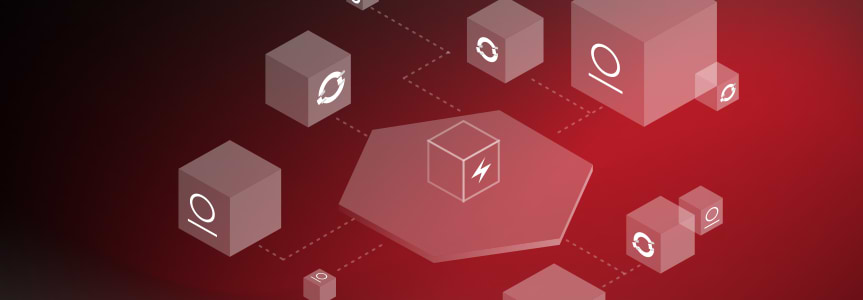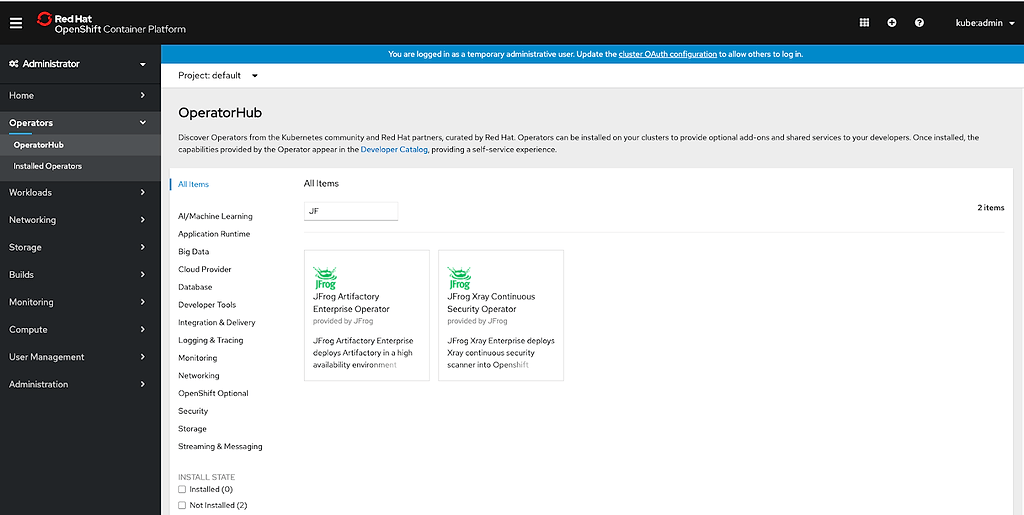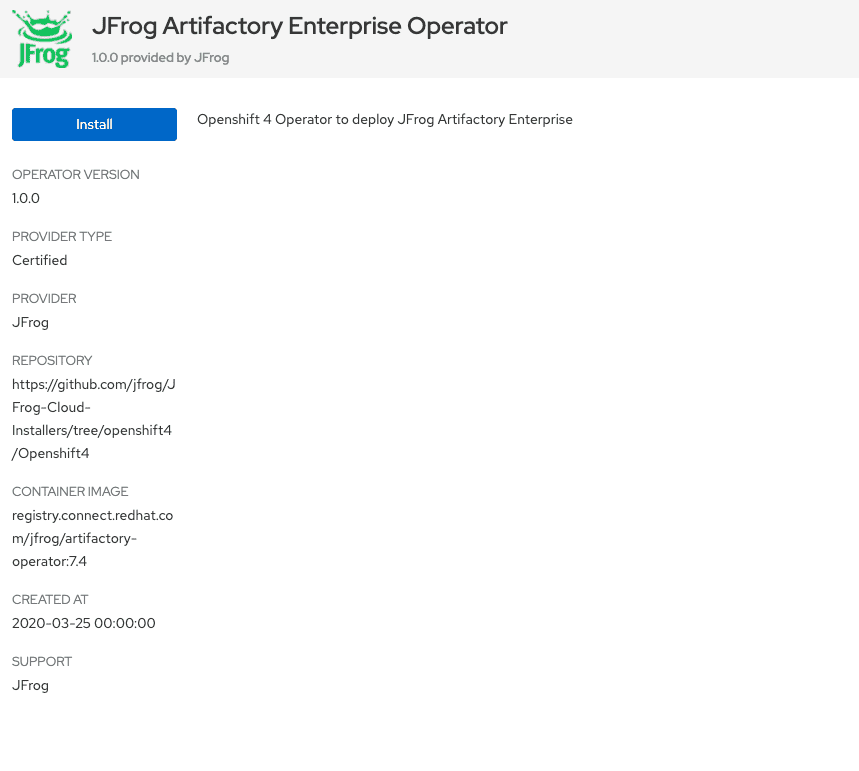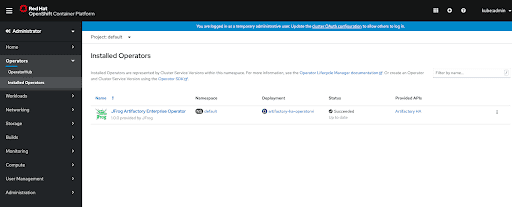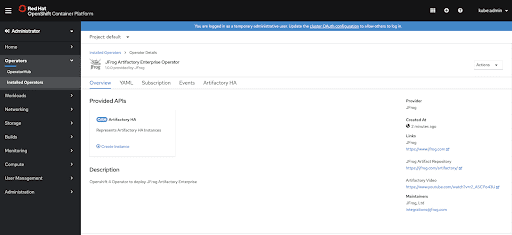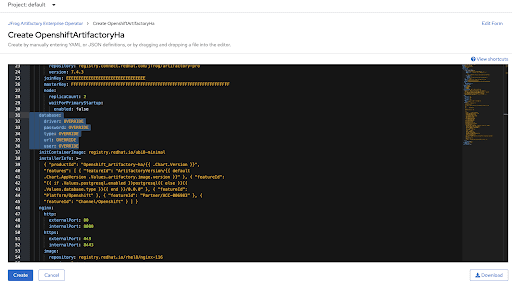A Smooth Operator to Run JFrog Enterprise on OpenShift
Red Hat OpenShift and JFrog Artifactory are a smooth fit together for cloud-native, containerized software development at enterprise scale. With the new availability of OpenShift operators certified for JFrog Enterprise, that fit now fastens tight.
Built for Kubernetes Scale
Trusted by over 1,700 organizations, Red Hat OpenShift is a leading hybrid cloud, enterprise Kubernetes application platform. JFrog Artifactory, the industry standard for binary management at the heart of the JFrog DevOps Platform, is used by over 5,000 companies, including many of the largest members of the Fortune 100.
Here’s how JFrog Enterprise, like OpenShift, is built for the needs of expanding, multi-team organizations:
- Repositories for all major package types help speed development efforts across languages (including (Java, npm, NuGet, Python, Golang, and more) and runtime environments.
- High availability and push/pull replication ensures performance that can keep up with hundreds of continuous integration builds every hour, and across the globe.
- Fully hybrid, with the same operation and features whether running on-prem or in the cloud.
With support for Docker registries and Helm chart repositories, Artifactory Enterprise acts as your fully traceable Kubernetes registry, and a trusted source of truth for the software you deploy into OpenShift K8s.
OpenShift Operators for JFrog Enterprise
OpenShift operators are a method of packaging, deploying, and managing a Kubernetes application. They help handle the complex details of running containerized software, monitoring the state of the OpenShift Container Platform to make automated real-time operating decisions.
The OpenShift operator now available for JFrog Enterprise is compatible with OpenShift 4 and performs this automated monitoring for your deployment of Artifactory. It helps keep Artifactory running in your K8s cluster by:
- Setting up the correct RBAC policies to run JFrog Artifactory securely
- Deploying JFrog Artifactory in a high availability (HA) mode
- Provisioning the required storage and service endpoints
For those adding JFrog Xray to their JFrog Enterprise subscription for DevSecOps, a second OpenShift operator is available to similarly aid install and maintenance of Xray continuous security.
Deploying JFrog Artifactory With Operators
To use the JFrog Artifactory certified OpenShift Operator in your OpenShift cluster, you’ll first need to install an external relational database service such as MySQL, PSQL, Oracle, or MSSQL.
For SSL to work with Artifactory, you will also need to specify tlsSecretName for secure Kubernetes ingress through TLS private key and certificate. This K8s secret can be created through the oc create command of the OpenShift Developer CLI.
$ oc create secret tls tls-ingress --cert=tls.crt --key=tls.key
Alternatively, the secret can also be created through the OpenShift web console:
...
service:
ssloffload: false
tlsSecretName: OVERRIDE
To deploy the Openshift operator login to your cluster’s web console, go to OperatorHub, and search for “JFrog.”
Select the JFrog Artifactory Enterprise Operator. In the resulting popup, click Install.
Once installed, the operator is listed among OpenShift’s Installed Operators.
Click the listed JFrog Artifactory Enterprise Operator to view the list of Provided APIs. To deploy JFrog Artifactory in high availability mode, select Artifactory HA, then click Create Instance.
In the Create instance screen, specify the database configuration values driver, password, type, url, and user.
Click Create to deploy a new instance of JFrog Enterprise into Openshift.
OpenShift and Artifactory With Ease
Once installed, Artifactory can be made available to all your organization’s development teams for use in their CI/CD pipelines to produce containerized software. And you can harden your OpenShift cluster even further through the JFrog Platform’s fine-grained access control to limit which third-party source images are used.
With OpenShift, JFrog Enterprise empowers you to scale DevOps practices across your organization, with Artifactory’s repositories protecting your development pace from internet disruptions and remote site downtime.
To learn more about using these operators, register for the Red Hat webinar “Best Practices for BinOps in the Enterprise,” where I’ll be presenting a session that includes deploying JFrog Xray as well.



